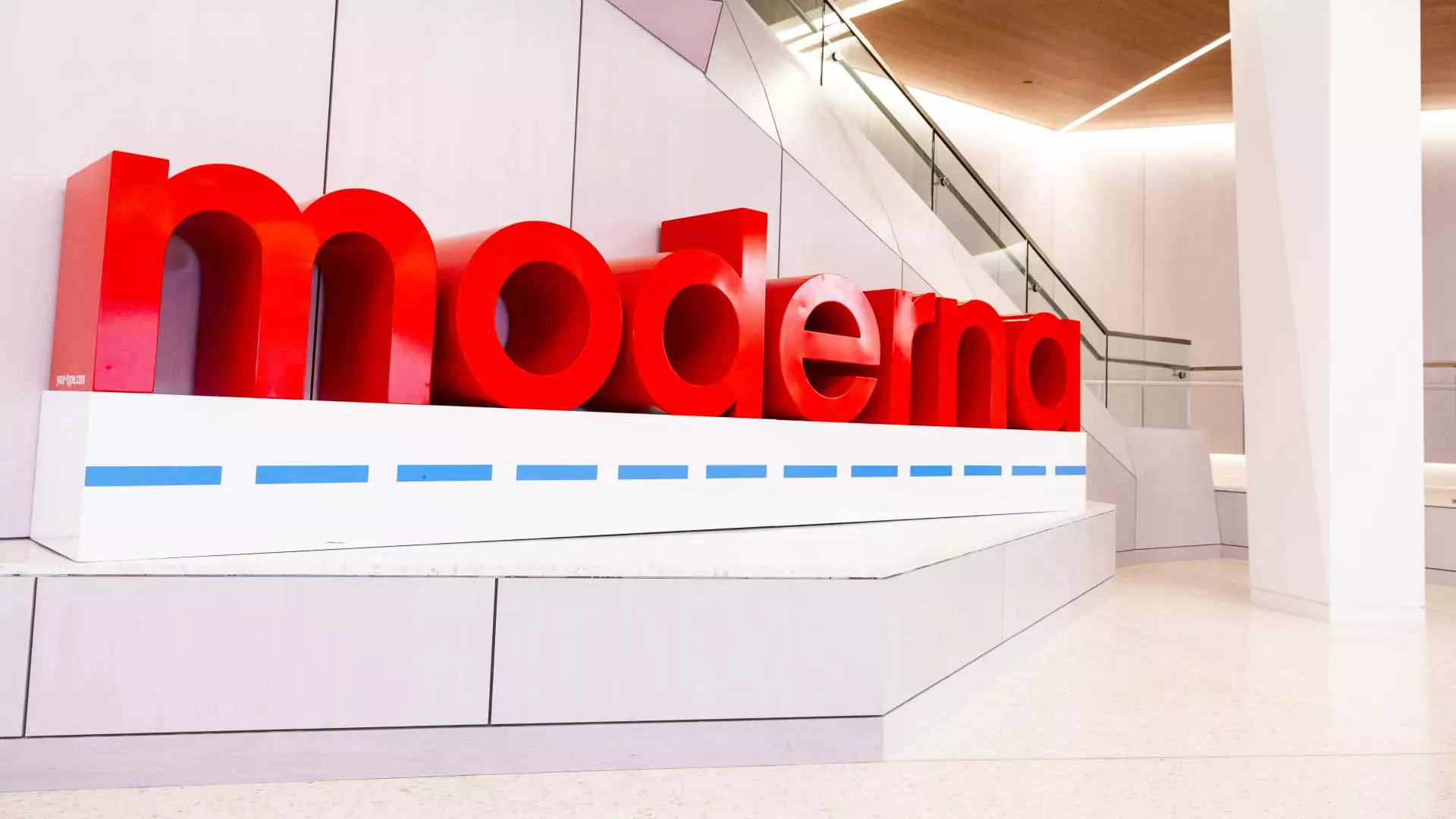Moderna, a prominent name in the biotechnology industry, has recently defied Wall Street predictions by posting a surprise net profit in its third-quarter earnings report. This unexpected outcome signals not only the effectiveness of the company’s aggressive cost-cutting measures but also a resurgence in demand for its Covid vaccine. Within the broader context of the fluctuating biotech landscape, this pivotal moment reflects Moderna’s adaptive strategy in navigating the post-pandemic market reality.
In stark contrast to the previous year’s staggering loss of $3.63 billion, Moderna reported a net income of $13 million for the third quarter, equating to an earnings per share (EPS) of 3 cents. Analysts had anticipated a loss of approximately $1.90 per share, making the actual results particularly noteworthy. The company’s total revenue reached $1.86 billion, significantly surpassing the forecasted $1.25 billion, suggesting that not only is Moderna learning to manage its expenses, but it is also successfully enhancing its revenue channels through sales increases.
What’s particularly interesting is that this quarterly performance represents a pivotal recovery phase for a company whose fortunes were intensely tied to Covid vaccine sales as the pandemic began to recede. The majority of Moderna’s revenue—over $1.2 billion—stemmed from U.S. sales of its Covid vaccine, highlighting that consumer confidence in the product remains robust despite the overall decline in pandemic-driven market needs.
The strategic direction highlighted by CEO Stéphane Bancel, including a targeted goal to slash $1.1 billion in costs by 2027, is critical for Moderna’s recovery plan. This focus on cost-efficiency is evident in their third-quarter financials, where the cost of sales experienced a dramatic 77% reduction from the same period last year, attributed largely to a significant decrease in unused Covid vaccine doses. The company noted it had written down $214 million worth of these doses, which points to prudent inventory management amid shifting demand patterns.
Moreover, recent reports indicate a mixed performance for Moderna’s newest product, the respiratory syncytial virus (RSV) vaccine, which garnered $10 million in sales. Although approval came later than expected, contributing to this tepid result, it underscores the challenges the company faces in penetrating a competitive market rife with established players.
Looking ahead, Moderna is not purely resting on the laurels of its vaccine success; rather, it is actively diversifying its product offerings. The company prepares to work on expanding its lineup, which includes the next-generation Covid vaccine, a combination shot targeting both Covid and influenza, and an expanded indication for its RSV vaccine aimed at adults aged 18 to 59. This product pipeline is crucial for Moderna’s aspirations, especially given market analysts’ skepticism regarding sustainability after the Covid vaccine boom.
The promise of ten new products expected to enter the market over the next three years highlights Moderna’s commitment to leveraging its messenger RNA (mRNA) technology beyond Covid. The innovative work on a standalone flu vaccine and a personalized cancer vaccine in collaboration with Merck points to a future-oriented approach that industry observers find encouraging.
Despite the favorable results of the third quarter, Moderna finds itself in a challenging position within a market marked by steep declines in its stock price, nearly 50% year-to-date. Investor sentiment remains cautious as the world transitions into a post-Covid equilibrium. The company must convince shareholders that its future products and innovations can replace the now-dwindling revenue streams from its Covid vaccines.
Furthermore, the competition landscape reveals a significant shift, as other vaccine producers market their own solutions, creating pressure on Moderna’s pricing strategies and market position. Analysts are particularly attuned to the upcoming product launch timelines and any regulatory approvals that may impact sales and market share.
Moderna’s recent performance signals a sound rebound shaped by effective cost-control measures and a favorable shift in vaccine demand. While the company must navigate significant challenges, particularly with growing competition and investor skepticism, its focus on diversification has the potential to yield significant long-term rewards. As Moderna continues to innovate and adapt, all eyes will be on its ability to sustain profitability and carve out a lasting presence in the biotechnology sector amidst ongoing global health shifts. Adaptation, both financially and operationally, will be key in determining its trajectory in the coming years.

Leave a Reply